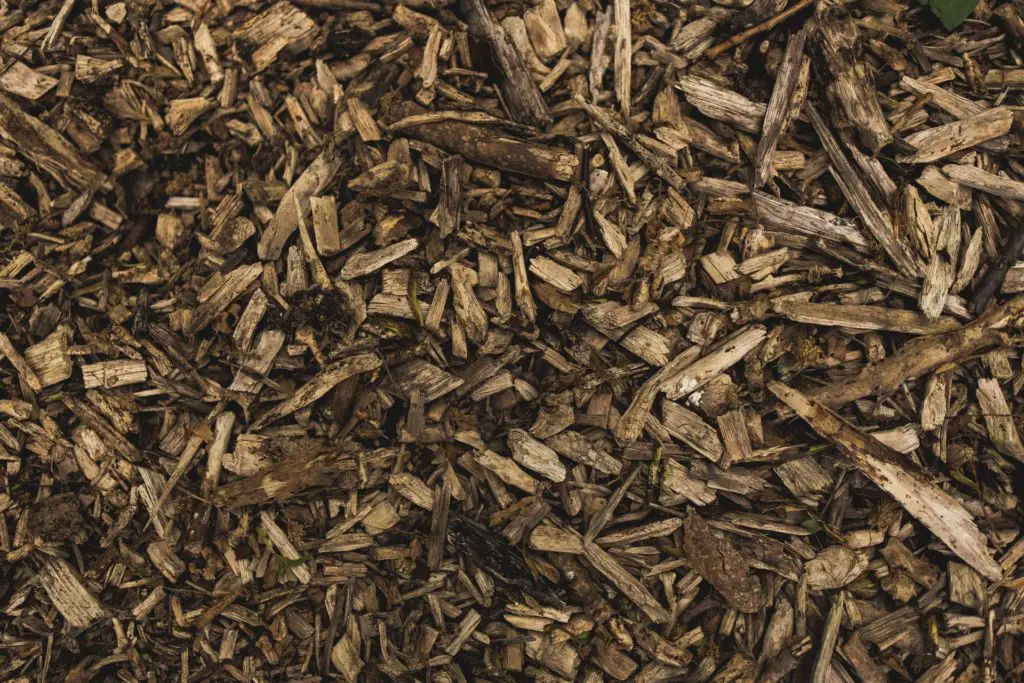Probably you used orchid bark for your orchids. And now you have the remaining bark. And wondering if you can use it as a mulch for your other plants.
In this article, we gonna answer your question regarding whether you can use orchid bark as a mulch or not.
And why people use bark for mulching. And its properties. Therefore you will have a more holistic view of using orchid bark as a mulch.
Returning to our main question. You can use orchid bark effectively as mulch as long as the bark chips are dimensionally semi uniformed. And the bark is not procced to eliminate the resin content.
Orchid bark producers process the bark to decrease the resin content in order to encourage the growth of the orchid roots.
But one of the main mulch functions is to hinder the growth of the weeds. So orchid bark may not work effectively in weed growth prevention.
But, it at least blocks the sunlight from reaching the weeds. Which something can decrease the odds of weeds growth.
Therefore using orchid bark as mulch can help to some extent regarding weeds prevention. But not as effective as mulch focus bark.

Photo by Paul Green on Unsplash
In order to decide whether you can use your orchid bark as a mulch. You need to understand why you should use mulch in the first place ( mulch functions).
And then understand the orchid bark properties. And whether those properties will allow the orchid bark to function as a mulch.
This exactly what we will cover in the rest of this article. Keep reading to get the bigger picture.
Why Using Bark As Mulch
The bark is one of the organic materials that you can use to mulch your yard, raised beds, or houseplants.
Bark mulch helps you to accomplish the following:
Plant roots insulation
It helps to keep your plant’s roots from freezing and exposure to very low temperatures during winter.
Also, it keeps the roots in moderate temperature if you living in a hot spot or during summer. Bark works as an insulating medium that can retain warmth during winter. And blocking colds from getting into the soil.
Moisture retention
Using bark mulch can decrease your plant’s maintenance requirements. Because it will decrease the amount of watering through retaining moisture for a longer period.
Sometimes you may have a plant that likes direct sunlight. But at the same time, it needs consistent moisture.
In such a case bark mulch can be extremely beneficial. Because it allows your plant to be placed where it gets enough sunlight. At the same time, its roots reside in moist soil.
Weed growth control
Bark mulch blocks the sunlight from reaching weeds seeds. Such a thing will hinder the seed’s germination process.
Soil structure enhacement
Through time the bark you used to mulch your plants will break down and decompose.
Therefore it will add up to the soil’s nutrients and organic components.
Fostering a clean and neat environment
Mulching your garden or pots will help you to keep your environment clean. Because it helps to keep dust from blowing around.
Ornamental purposes
Lastly, who doesn’t want to add to his pots and garden decorative look! Bark mulch gives your garden or pot a more appealing appearance than the bare soil.
Now you now the bark mulch functions. Keep reading to explore whether the orchid bark will perform those functions or not.
Orchid Bark As A Mulch
lets explore how orchid can perform in the following functions:
Plant’s roots insulation
Orchid bark will work fine regarding roots insulation. It will keep your plant roots exposed to reasonable temperatures both in winter and summer.
Moisture retention
Orchid bark will decrease the evaporation rate. Although most orchid focus bark is fir bark that has medium water retention properties compearing to other materials. But it will work just fine.
Weed control
As I mentioned before most orchid barks are processed either through normal aging or chemically to decrease the resin content. Bark resin help in hindering weed growth.
But it will still block the sunlight from getting to weed seeds. Which makes it hard for weeds to grow.
Soil structure enhancement
At the end of the day, orchid barks are organic particles that will decompose through time. And will transform to plant food.
It will also improve soil properties. Actually orchid bark at this function has an advantage over other mulching materials.
Because it aged or processed bark. It will not absorb much nitrogen from the soil in order to decompose as other mulching barks do.
Bark mulch producers use fresh bark. Therefore it needs nitrogen to decompose.
such a thing may decrease the soil’s nitrogen. While nitrogen is something essential for the plant.
Keeping dust from blowing around
Orchid bark will keep dust from messing around as good as any other mulching material do.
Ornamental purposes
Orchid bark passed the decorative test too. U can still have decorative pots, garden, or raised beds if you used orchid bark as a mulch.
Possible Disadvantages Of Using Orchid Bark As Mulch
1. Orchid barks are not uniform
Many orchid barks are not dimensionally uniformed. Proper mulching requires uniform particles.
But this is not always the case. Some orchid barks came uniformed and relatively have similar dimensions.
2. Orchid barks are less effective on weed control
Normally barks contain resin when they are still on the trees’ trunks. And they lose that resin through time.
Mulch bark producers use fresh and new barks. Because bark’s resin hinders the growth of the weeds.
But orchid focus bark’s producers either process the bark chemically to get rid of the resin or wait for the bark to lose its resin through time before using it.
Therefore orchid bark will not be effective as other barks when it came to weed control. But it will still contribute to weed control by blocking the sunlight from reaching the weed seeds.
Conclusion
After we went through the purposes of mulching. And explored to which extent orchid bark can help us to meet those purposes.
We can conclude that it is reasonable to use orchid bark as mulch. Although there are disadvantages.
You should ask yourself. Why do you want to mulch? If orchid bark properties satisfy your reasons. Go ahead and use it. Finally, For detailed information and a holistic perspective on caring for potted plants and mastering Container Gardening, Get my book Container Gardening: A Step-by-Step Practical Guide.
